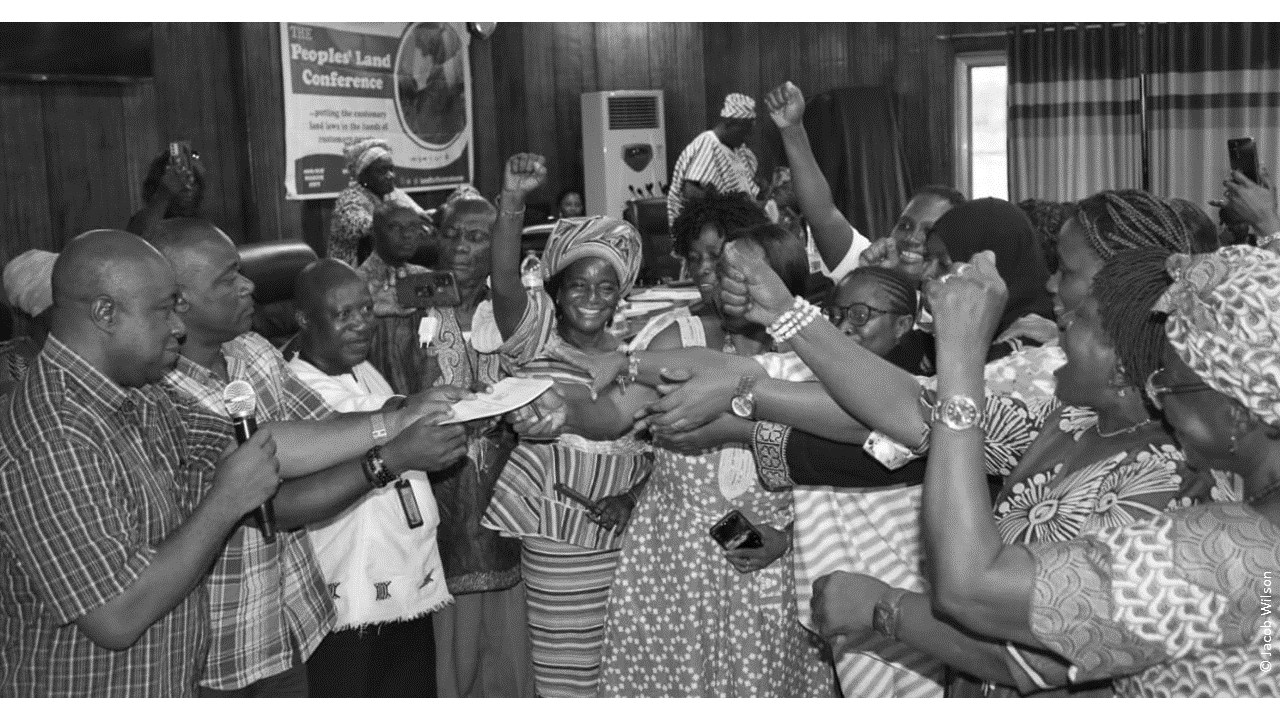- By Gaianee Bouyssou
- 23. June 2023
- 0 Comments
A recap of the VGGT+10 concluding event held on July 4, 2023.
A decade after the adoption of the Voluntary Guidelines on the Responsible Governance of Tenure of Land, Forests and Fisheries in the Context of Food Security (VGGT), the VGGT+10 initiative has aimed to strengthen their momentum and raise commitment for their further implementation. After over a year of assessments, dialogues, and action plans, partners from across the globe met to celebrate and strategize.
FAO’s land specialist Ingeborg Gaarde made opening remarks, highlighting the influence of the VGGT and the FAO’s role in support. Anna Schreiber from Welthungerhilfe then gave an overview of the main achievements and products of the initiative on the international level. Afterward, the discussion shifted to the focus of the event: experiences with the VGGT+10 initiative and perspectives on the implementation of the VGGT at the country-level.
Engagement of national and local governments emerged as a common challenge but also a key factor in success. To build political momentum, participants discussed pathways rooted in advocacy, dialogue, and collaboration.
Learning from a decade of implementation
Expert analysis of VGGT impacts has found significant policy progress in areas such as women’s land tenure, recognition of customary rights, and transparency in policymaking. Nevertheless, challenges persist in actualizing progressive policies. The findings can be accessed in a synthesis report of the initiative.
Planting new seeds
VGGT+10 has supported multi-stakeholder national dialogues to discuss the status of land governance and formulate joint strategies, while providing seed funding for some of these activities.
Reflecting on one VGGT+10 supported project, Miriam Onadia from Land for Life Burkina Faso described an initiative for traditional authorities to emphasize women’s rights to land. In Burkina Faso, customary law governs much of rural society, so pragmatic implementation of VGGT principles such as gender equity requires the leadership of customary authority. The impact of this intervention was poignantly highlighted by a testimonial video.
Similarly, in rural areas where literacy rates are low, one project used local agents to explain land rights using pictorial guides. These projects are implementing the learnings of reflective dialogue and adapting VGGT principles to the realities of local contexts.
Navigating Challenges
A major challenge faced by many participants is building and maintaining relationships with national and local governments. Multiple participants also described a trend of shrinking political space for civil society due to power shifts in their countries.
In Ethiopia, government authority over land ownership is fractured across a variety of institutions. In this complicated and highly volatile context, Land for Life Ethiopia’s Fikru Takele spoke about finding key allies within national and regional government with whom to collaborate and advise on VGGT principles. James Yarsiah from the MAP Liberia Land Platform explained that political support for the VGGT in Liberia has been diminishing, but through VGGT+10, the team is revitalizing a technical support unit hosted by the Ministry of Agriculture. Similarly, Eric Raparison described that partners in Madagascar are working to build open dialogue on land administration through a new platform which will extend decision-making processes beyond elite government circles.
Where government and civil society interests form a strong bond, VGGT principles work best. The Malawian minister of agriculture, Davie Chilonga, works closely with the FAO and civil society organizations on land related issues. In Malawi, engagement in VGGT processes builds trust and social capital and maintains political momentum for land rights through routine dialogue.
Sustaining Momentum!
The event was concluded with closing remarks and reflections by Klaus Ackerman of GIZ. Although political enthusiasm for improved land governance has been diminishing, partners in different countries have found creative solutions and built dynamic networks.
On the international level, land rights advocates can mobilize political will and funding by integrating land tenure issues into development objectives such as mitigating and adapting to climate change, biodiversity conservation, reducing land degradation and transformation of food systems.
While celebrating the successes of VGGT informed policy, land rights advocates must continue to emphasize the importance of improved land governance at both national and international levels. The VGGT+10 initiative has been a valuable opportunity to pursue these goals together.

28.07.2023
Gaianee Bouyssou

